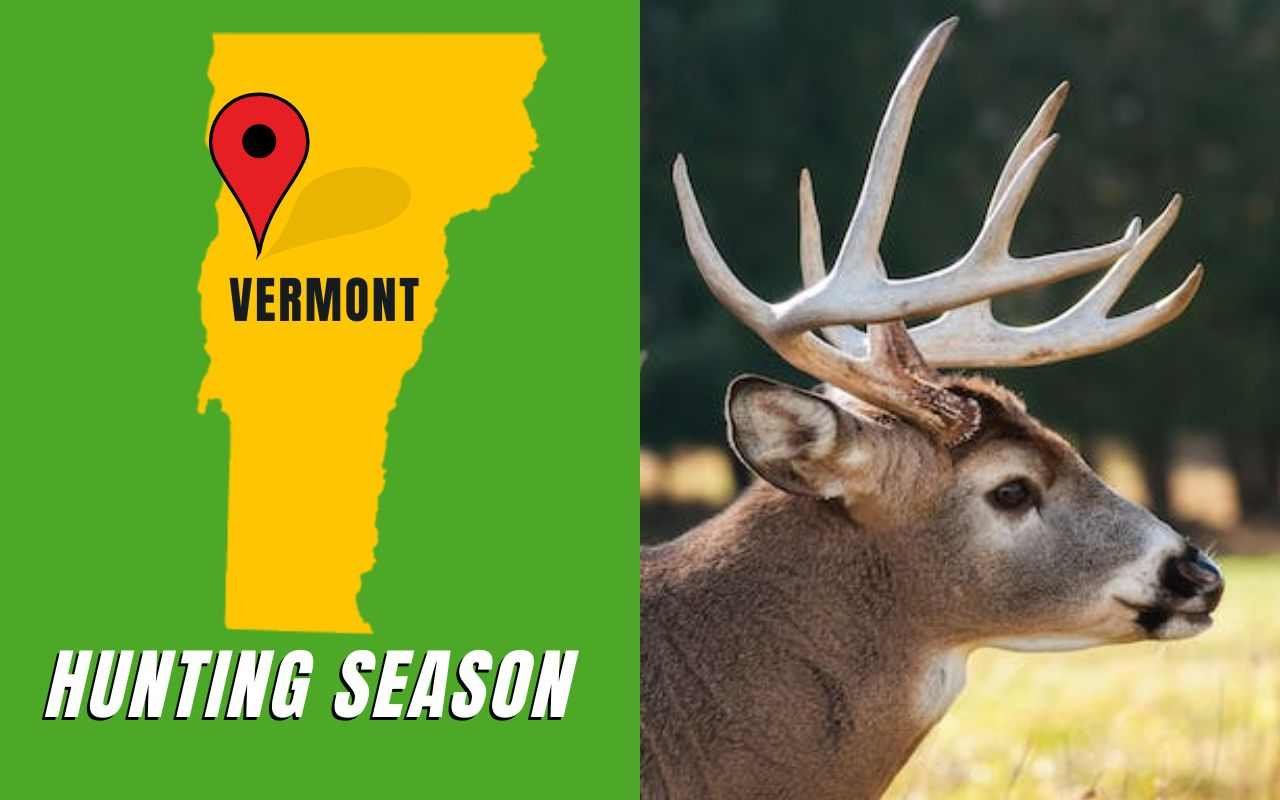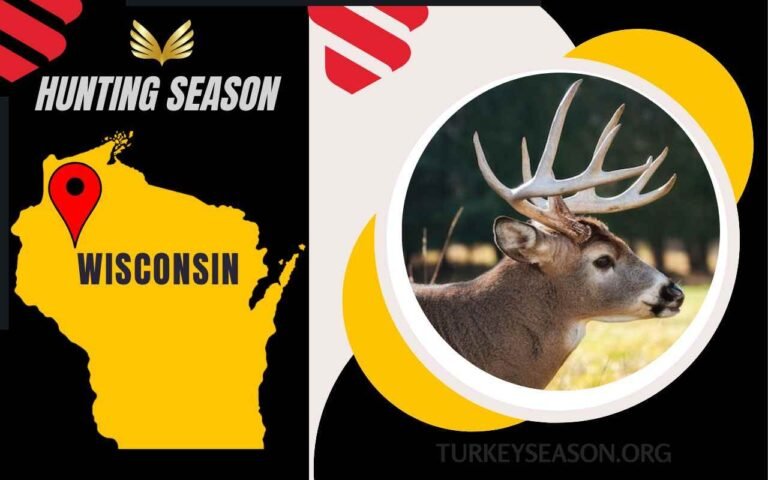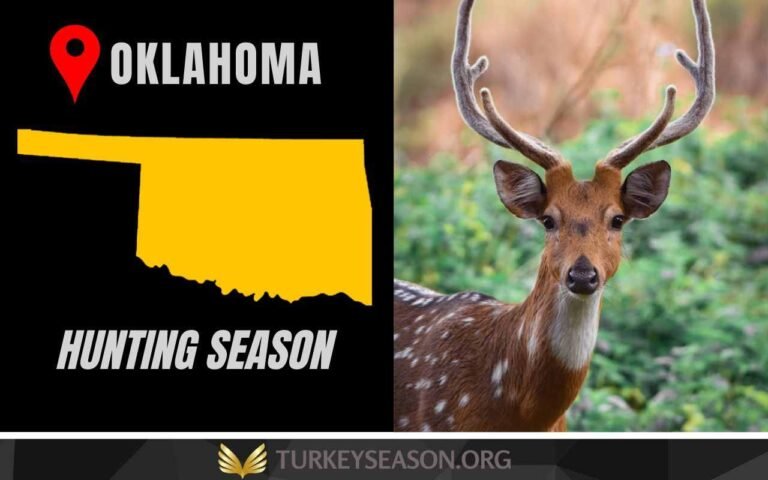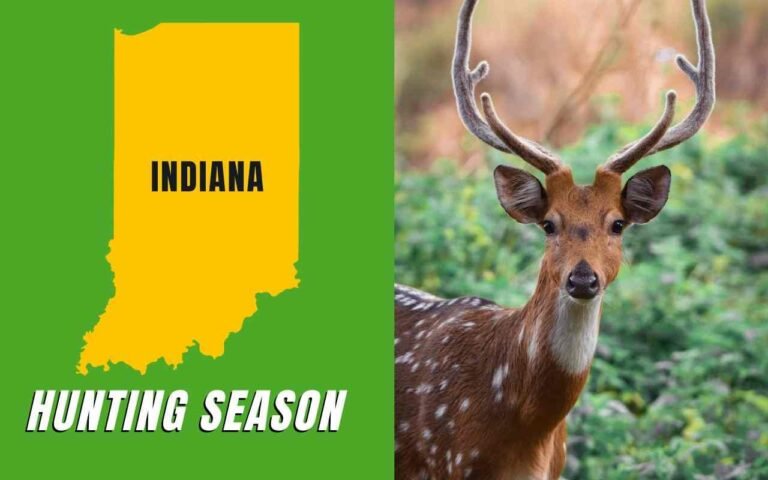Discover Vermont Hunting Season 2023: Everything You Need to Know!
Vermont has a long tradition of hunting, which reflects a close relationship to subsistence farming and a respect for the natural world. To guarantee legal compliance, support animal conservation, prioritize safety, follow species-specific laws, and respect private property, hunters in Vermont must be aware of hunting seasons and rules. Hunters may have a rewarding hunting experience while actively protecting the state’s natural resources by being acquainted with the regulations set by the Vermont Fish and Wildlife Department.
Game Species and Their Hunting Seasons
Bear Season
| VT Black Bear Hunt Type | Season Dates |
|---|---|
| Early Season | September 1, 2023 - November 10, 2023 |
| Residents who hunt black bear with dogs must have a permit | September 1, 2023 - November 19, 2023 |
| Black bear hunting by non-residents can use dogs with permit | September 15, 2023 - November 19, 2023 |
Fox Season
| VT Hunt Type | Season Dates |
|---|---|
| Red & Gray Fox | October 28, 2023 - February 11, 2024 |
Bobcat Season
| VT Bobcat Hunt | Season Dates |
|---|---|
| Hunting Season | January 10, 2023 - February 7, 2023 |
| Trapping Season | December 1, 2023 - December 16, 2023 |
Coyote Season
| VT Hunt Type | Season Dates |
|---|---|
| Coyote (No Limit) | January 1, 2023 - December 31, 2023 |
Rabbit Season
| VT Hunt Type | Season Dates |
|---|---|
| Rabbit (Hare) WMUs D&E remain open through March 31 | September-22 - March-23 |
Vermont Deer Season
| VT Deer Hunt | Season Dates |
|---|---|
| Archery (except closed during regular November season) | October-23 - December-23 |
| Youth Deer Weekend | October-23 - October-23 |
| Novice Weekend | October-23 - October-23 |
| Muzzleloader Antlerless | October-23 - October-23 |
| November Regular | November-23 - November-23 |
| Muzzleloader | December-23 - December-23 |
VT Furbearer Hunting Season
| VT Furbearer Hunt | Season Dates |
|---|---|
| Muskrat | March-23 - April-23 |
| Bobcat | January-23 - February-23 |
| Coyote | No Open Season |
| Fisher, Otter, Beaver | No Open Season |
| Marten, Lynx, Wolf | No Open Season |
| Raccoon | October-23 - December-23 |
| Red & Gray Fox | October-22 - February-23 |
| October-23 - February-24 |
VT Furbearer Trapping Season
| VT Furbearer Trapping Hunt | Season Dates |
|---|---|
| Fisher | December-23 - December-23 |
| Beaver | October-23 - March-24 |
| Bobcat | December-23 - December-23 |
| Marten, Lynx, Wolf | No Open Season |
| Red and Gray Fox, Raccoon, Coyote, Opossum, Weasel, Mink, Skunk | October-23 - December-23 |
| Otter | October-23 - March-24 |
| Muskrat | October-23 - March-24 |
VT Small Game Season
| VT Small Game Hunt | Season dates |
|---|---|
| Crow | |
| Fri/Sat/Sun/Mon only | January 20, 2023- April 11, 2023 |
| Fri/Sat/Sun/Mon only | August 25, 2023 - December 18, 2023 |
| Gray Squirrel | September 1, 2023 - December 31, 2023 |
| Hare & Rabbit | |
| All WMUs till March 31st, except D and E. | September 30, 2023 - March 10, 2024 |
| WMUs D, E | September 30, 2023 - March 31, 2024 |
VT Upland Birds Season
| VT Upland Birds Hunt | Season Dates |
|---|---|
| Ruffed Grouse-Partridge | September 24, 2023 - December 31, 2023 |
| Statewide Woodcock | September 24, 2023 - November 7, 2023 |
VT Turkey Season
| VT Turkey Hunt | Season Dates | Bags |
|---|---|---|
| Spring | May 1, 2023 - May 31, 2023 | Bearded turkeys (2) |
| Youth Weekend | The weekend before the start of spring turkey | Statewide bearded turkeys (1) |
| Novice Weekend | The weekend before the start of spring turkey | Statewide bearded turkeys (1) |
| Fall | ||
| Archery only | October 7, 2023 - October 20, 2023 | Statewide either sex (1) |
| Archery or Shotgun (WMUs B, D, G, H, I, J, L, M, O, P, and Q) | October 21 - October 29, 2023 | either sex (1) |
| Archery or Shotgun (WMUs F, K and N) | October 21, 2023 - November 5, 2023 | either sex (1) |
VT Waterfowl Season
| Ducks, Coots and Mergansers | Season Dates | Season Dates | Season Dates |
|---|---|---|---|
| Connecticut River Zone | October 4 - November 6 | November 23 - December 18 | |
| Interior Vermont Zone | October 15 - December 13 | ||
| Lake Champlain Zone | October 15 - October 23 | October 29 - December 18 | |
| Scaup | |||
| Connecticut River Zone | October 4 - November 6 | November 23 - December 18 | September 1 - September 25 |
| Interior Vermont Zone | October 15 - November 3 | November 4 - December 13 | |
| Lake Champlain Zone | October 15 - October 23 & | October 29 - November 8 | November 9 - December 18 |
| Canada Geese | |||
| Connecticut River Zone | October 4 - November 6 | November 23 - December 18 | December 19 - Jan 21 (applies to land, not CT River waters) |
| Interior Vermont Zone | September 1 - September 25 | October 15 - November 13 | December 1 - Jan 21 |
| Lake Champlain Zone | September 1 - September 25 | October 15 - November 13 | December 1 - Jan 21 |
| Snow Geese (includes blue geese) | |||
| Connecticut River Zone | October 4 - December 18 | March 11 – Apr 23, 2023 (applies to land, not CT River waters) | |
| Interior Vermont Zone | October 1 – December 31, 2022 | February 26 – March 10, 2023 | |
| Lake Champlain Zone | October 1 - December 31, 2022 | February 26 – March 10, 2023 | |
| Conservation Order (CO) | |||
| Interior Vermont Zone | March 11 – Apr 23, 2023 | ||
| Lake Champlain Zone | March 11 – Apr 23, 2023 | ||
| Brant | |||
| Connecticut River Zone | October 4 - November 6 | November 23 - December 8 | |
| Interior Vermont Zone | October 15 - December 3 | ||
| October 15 - December 3 | |||
| Woodcock and Wilson’s Snipe | |||
| Lake Champlain Zone | Statewide September 24 - November 7 |
Duck Season
| VT Duck Hunt | Season Dates |
|---|---|
| Lake Champlain | October 29, 2023 - November 8, 2023 |
| Interior Vermont Zone | November 4, 2023 - December 13, 2023 |
| Late Connecticut River | November 23, 2023 - December 18, 2023 |
Goose Season
| VT Geese Hunt | Season Dates |
|---|---|
| Canada Geese Lake Champlain Zone | September 1, 2023 - September 25, 2023 |
| October 15, 2023 - November 13, 2023 | |
| December 1, 2023 - January 21, 2023 | |
| Canada Geese Interior Vermont Zone | September 1, 2023 - September 25, 2023 |
| October 15, 2023 - November 13, 2023 | |
| December 1, 2023 - January 21, 2023 | |
| Canada Geese Connecticut River Zone | September 1, 2023 - September 25, 2023 |
| October 4, 2023 - November 6, 2023 | |
| November 23, 2023 - December 18, 2023 | |
| Canada Geese (Only land, not CT River waters) | December 19, 2023 - January 21, 2023 |
| Snow Geese (includes blue geese) Lake Champlain Zone | October 1, 2023 - December 31, 2023 |
| February 26, 2023 - March 10, 2023 | |
| Snow Geese (includes blue geese) Interior Vermont Zone | October 1, 2023 - December 31, 2023 |
| February 26, 2023 - March 10, 2023 | |
| Snow Geese (includes blue geese) Connecticut River Zone | October 4, 2023 - December 18, 2023 |
| Snow Geese (includes blue geese) Only land, not CT River waters | March 11, 2023 - April 23, 2023 |
| Conservation Order (CO) Lake Champlain Zone | March 11, 2023 - April 23, 2023 |
| Conservation Order (CO) Interior Vermont Zone | March 11, 2023 - April 23, 2023 |
Grouse Season
| VT Hunt Type | Season Dates | |
|---|---|---|
| Ruffed Grouse | September 24, 2023 - December 31, 2023 |
Moose Season
| VT Moose Hunt | Season Dates |
|---|---|
| Archery | 1-Oct - 7-Oct |
| Regular | 15-Oct - 20-Oct |
Hunting Licenses Fees
| VT Moose Hunt | Season Dates |
|---|---|
| Archery | 1-Oct - 7-Oct |
| Regular | 15-Oct - 20-Oct |
VT Hunting Regulations
- Whether a resident or not, anyone wishing to hunt in Vermont must have a current hunting license, the Vermont Fish and Wildlife Department can provide further information on licensing needs, including costs and application procedures.
- Candidates who have never had a hunting license must pass a hunter safety course. When requesting a hunting license, you must provide proof of your hunter safety certification, which may be shown on your hunter safety certification card. This certification guarantees people have learned the skills and information required for ethical and safe hunting.
- A copy of a prior year’s license or certification may be sent with your application if you already have a hunting or combination license from Vermont, another state, or Canada.
- People must complete a hunter safety course to learn the skills and information required for ethical and safe hunting. In Vermont, those who have never had a hunting license are required to provide evidence of their hunter safety certification.
- Hunters are required to handle guns safely and by all regulations. Understanding how to conduct, store, and transport weapons is crucial.
- Hunters must have the appropriate identity, licenses, and permits before hunting on private or public properties. When hunting on personal property, respecting landowner rights and seeking legal permission are crucial.
- Hunters must follow hunting seasons, bag limits, and possession restrictions to protect species and guarantee ethical hunting methods. Reporting harvests and complying with reporting requirements are crucial to control and monitor animal populations.
- Hunters should respect animals and cause as little disruption to their habitats as possible. Following safe game retrieval and handling procedures is essential to minimize needless damage to non-target animals.
- It’s critical to uphold moral hunting principles, such as fair pursuit, sportsmanship, and respect for the prey and its habitat. The game that has been collected should be used wisely, and wasteful methods should be avoided.
- To hunt in Vermont, one must have a current hunting license and abide by all applicable laws. The Vermont Hunting, Fishing, and Trapping Laws and Guide have comprehensive information on license requirements and rules.
- The official hunting laws for Vermont address several topics, such as season dates, licensing details, bag restrictions, and more. Various forms of game, including deer, turkey, migratory game birds, and big game taken outside of Vermont, are covered in detail under these restrictions. General regulations also provide information on transporting fish or wildlife, hunting on legally posted property, and other significant rules.
Frequently asked questions
How long is the Vermont hunting season?
Depending on the game species and hunting techniques, the Vermont hunting season lasts a different time. The regular deer hunting season lasts 16 days and generally begins on November 13 and ends on November 28. Specific Wildlife Management Units may have exceptions for muzzleloader antlerless deer. May 1 through May 31 are the dates for the spring turkey season, and hunting is permitted from one and a half hours before dawn to noon. There are two seasons for shooting black bears: an early season from September 1 to November 10 and a second season from November 19 to November 19 for local black bear hunters using dogs. The search results were not specific about the dates of the Vermont moose season. Remember to check official sources for the most current and recent information about hunting seasons in Vermont.
When does the rifle season in Vermont begin?
Around Vermont, the usual 16-day rifle deer hunting season generally starts around mid-November. This information allows us to forecast that the regular rifle season will begin on Wednesday, November 15, 2023.
When does the Vermont deer hunting season end?
The 2023 Vermont deer hunting season consists of several windows and categories of firearms. Beginning on October 1 and lasting until November 10, the archery season is followed by a break from November 11 to November 26 and a second break from November 27 to December 15. Next, the muzzleloader antlerless deer season, which requires permits, runs from October 26 to October 29, while the youth and beginner deer hunting weekend is on October 21 and 22. Finally, the muzzleloader season runs from December 2 to December 10, while the regular deer hunting season runs from November 11 to November 26.
Can nonresidents go hunting in Vermont?
Nonresidents may hunt in Vermont, although they are required to get a hunting license. To hunt in the state, nonresidents must possess a hunting license. For non-residents, a hunting license costs $26. There can be extra licenses needed, depending on the hunt. It’s crucial to remember that the Vermont deer hunting season is subject to specific rules and may have various durations and weapon kinds. It is advised to visit the Vermont Fish and Wildlife website or refer to the official hunting rules for comprehensive and up-to-date information on hunting permits, restrictions, and requirements for non-residents.
- Louisiana Turkey Season 2026: LA Turkey Hunting [Dates, Regulations, Licenses & More] - January 5, 2026
- Kentucky Turkey Season 2026: Latest Hunting Dates, Regulations & Licenses! - January 5, 2026
- Kansas Turkey Season 2026-2027: Latest Dates, Licenses, and Regulations Now Available! - January 3, 2026



